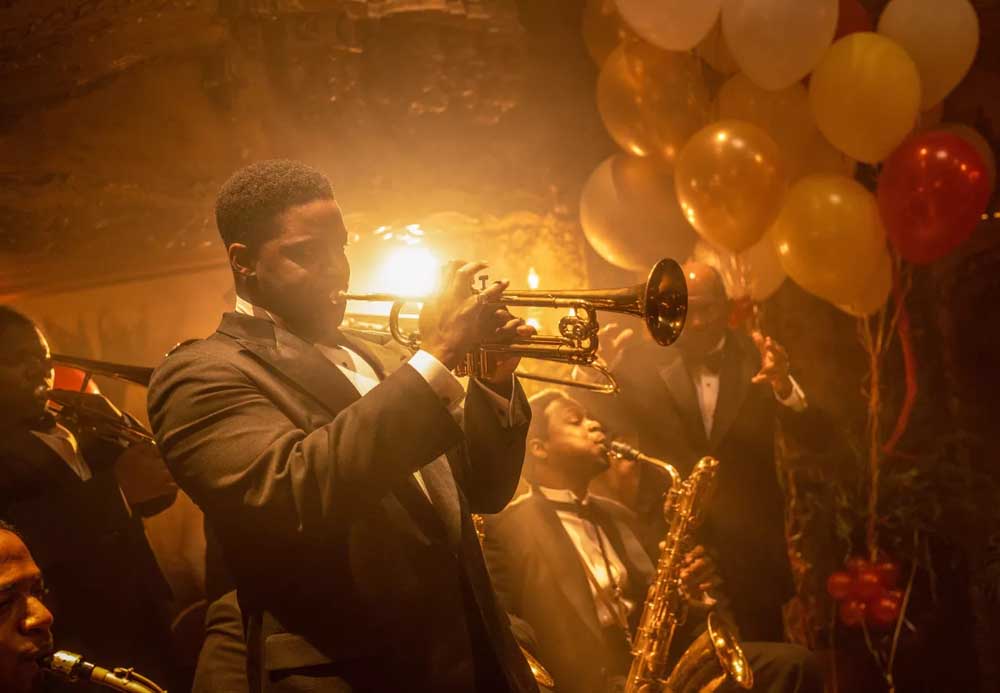Captivating “Babylon” captures best and worst of Hollywood
Published 3:45 pm Wednesday, December 28, 2022

- Jovan Adepo in a scene from the much-trumpeted film “Babylon," which looks at the world of Hollywood at the end of the silent-film era.
There is a lot to process with the latest film from Oscar-winning writer/director Damien Chazelle.
The bold, brash and unapologetically debauched “Babylon” takes its viewers on a well-earned three-hour ride through the hard partying Hollywood of the late 1920s. The industry is beginning to see the seismic changes that came with the introduction of sound, and with it, the meteoric rise and fall of stars of the era. It will definitely not be to everyone’s liking, and some may be turned off by its outrageous and over the top crudeness, but get through it, and there is an impeccably crafted film full of rich performances, gorgeous set and costume design, a banging soundtrack and a stellar story that perfectly walks a tightrope between cynical and wistful .
Trending
While the characters within Chazelle’s world are largely fictitious, they’re based on the real players of the time period and each blends the historically charged context with modernism.
The film is littered with nods and references to the silent era and pre-Hayes code Hollywood, and each is blended so smoothly in that you can tell the team at work has a deep knowledge and love for the time period depicted.
“Babylon” follows three main threads: the biggest star of the time who is just about to see the crest in his career, Jack Conrad (Brad Pitt), the wild, recent discovery who makes a giant splash, Nellie LaRoy (Margot Robbie), and the naturally talented and eager young man who is so enamored by it all he just wants to be a part of it, Manuel “Manny” Torres (Diego Calva). We meet them all at the party of the decade, full of sex, drugs, jazz and bodily fluids, Manny is in charge of arranging the entertainment for the evening, a surprise elephant (not a euphemism). Nellie lies her way in with a little help from Manny, who is immediately smitten with her, and Jack waltzes in after a fight with his current wife but doesn’t take too long to get over it when a waitress flashes her … eyes at him.
We also meet three characters with more secondary, but no less important, stories: Elinor St. John (Jean Smart), the elegant gossip columnist; Sidney Palmer (Jovan Adepo), the immensely talented Black trumpet player; and Lady Fay Zhu (Li Jun Li), the enchanting performer and title card writer. With Elinor providing a fascinating commentary on the industry as it changes, Sidney and Lady Fay highlight the ever-growing discrimination that came with those changes.
While Manny and Nellie find their way quickly on to a set the following morning, with Nellie stepping in for an actress who overdosed at the party the night before and Manny joining Jack, they are both thrown into this magical and equally chaotic place, and both are flung into the lively and depraved world that exists behind the scenes. But a change is coming, and sound and morality is about to shift the entire land they fall deep into.
Robbie is fearless as Nellie and brings a hidden pain underneath the drug-fueled, manic wild child she presents to the world. Pitt grounds aging Jack, who struggles to create something special while remaining relevant and latching on to the next woman who will flash him a friendly glance. There’s an odd meta-theatricality to his performance that in any other hands could have been too much, but Pitt dances the line well.
Trending
Calva shines in his first major starring role, and what a role it is. Manny’s wide-eyed wonder is palpable, and while it slowly devolves into cynicism, he maintains a certain charm you can’t take your eyes off of.
There’s also a sadness to “Babylon,” as we see these people’s lives built up and then shattered, and how the industry shuts out certain voices, both behind the scenes and on screen.
The team wonderfully creates a period drama that feels sharply modern. Everything is ambitious and meticulous, with nothing left to chance or forgotten.
There is a wonderful divide between the silent era and the introduction of sound. Chazelle paints a completely cacophonous world in depicting the process behind the silent films, then reverses it. Once sound comes into play, Chazelle and his team show how silent the world has to become in order to capture this new aurally driven artform.
On the whole, Chazelle walks this line between showing the absolute worst of Hollywood and what it’s done to itself through reinvention and changes while at the same time saying, “Yeah, but ain’t it great?”
“Babylon” by its nature is going to be polarizing. Each layer of the film crosses lines while diving deeper and deeper into another level of depravity, exploring fully this transition of the industry and the people within it. Jean Smart delivers beautifully a monologue that brings the duality of the film to a head when she says that long after every one of them is gone, the films they created will live on. What they have done on nitrate film matters, regardless of the lives behind it, showing generation after generation the worlds they created.
And ain’t that great?
“Babylon”
188 minutes
Rated R for strong and crude sexual content, graphic nudity, bloody violence, drug use, and pervasive language.
4 stars








